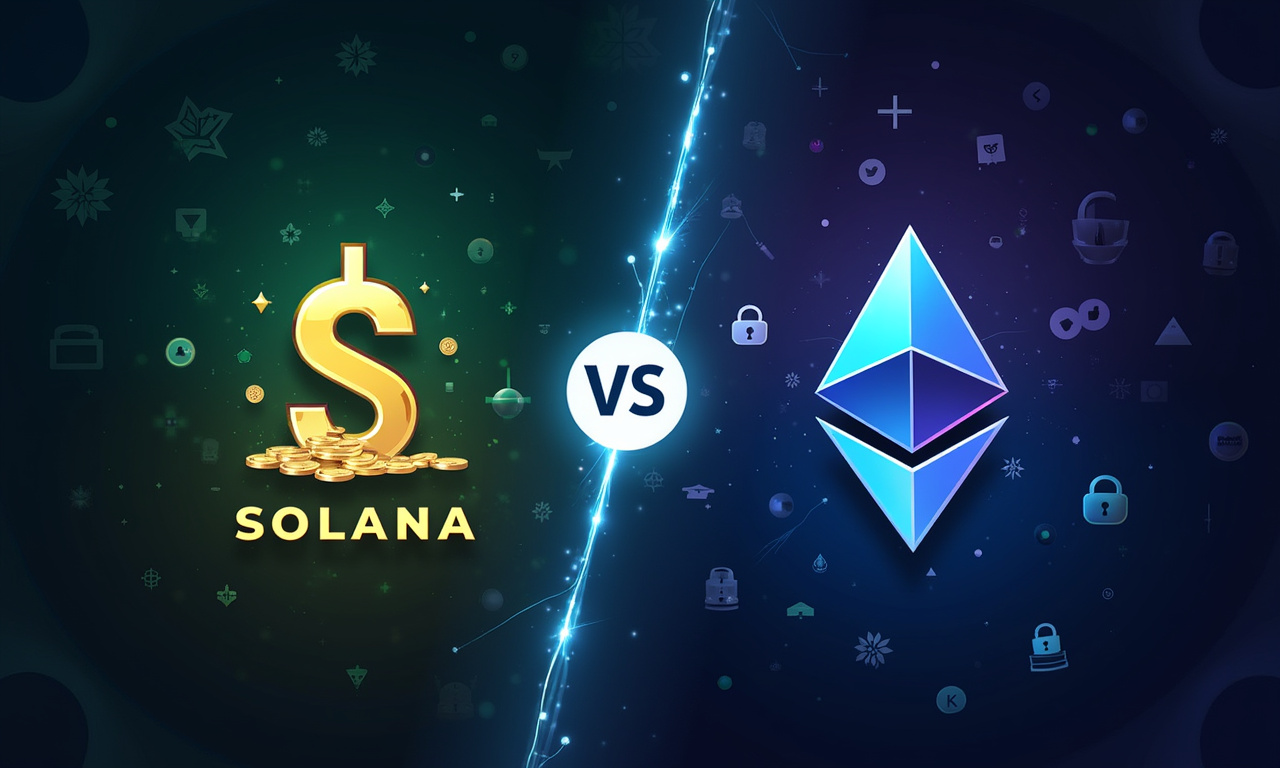
Alright, crypto fam, let's get real. You’re reading the news stories, the all-star returns, the incredible promise of DeFi, NFTs, and the entire freaking decentralized ecosystem. But are you really part of it? Or are you merely leasing a playing field in another entity’s crypto funhouse?
It's holding on to the status quo for dear life when you could be leading the charge to a new financial independence future. Think of it: You wouldn't leave your life savings sitting in a cardboard box on the street, so why are you treating your crypto like that?
Let’s look at five wallet fails that aren’t just costing you money—they’re costing you your crypto soul.
1. Exchange Dependence: Surrendering Your Power
Let's cut the crap. Leaving your crypto on an exchange is similar to keeping your money in a bank's mattress. Sure, it seems convenient. But are you really in control? Remember 2008? Remember the bailouts? Who got bailed out and who was left holding the bag.
Exchanges are centralized. They're vulnerable. They’re the exact sort of thing crypto is attempting to replace. They can freeze your assets, get hacked or go belly up. And then what? You're at their mercy.
Unexpected Connection: This isn't just about losing money. It's about losing agency. It’s not just because it’s continuing to reproduce the same power imbalances that crypto purports to eliminate. It’s akin to electing a transformative presidential candidate and then allowing the deep state establishment to pen the administration’s legislation.
Get a wallet, control your keys, and stop letting someone else be your bank. Which leads us to...
2. Weak Passwords: Rolling the Dice with Destiny
What, you think you can rely on the virtual equivalent of “password123” for free? Or better yet, the same password you have for all other sites?
This isn't just lazy. It's irresponsible. That’s the same as keeping your front door wide open and complaining when someone robs you.
Think of your password as the gatekeeper to your personal digital nation. A strong password protects you about as well as a dollar store border wall built out of popsicle sticks. It’s no longer a question of if it will fail, but when.
Use a password manager. Generate strong, unique passwords for every account. Enable two-factor authentication (2FA). And for the love of Satoshi, don’t put your password on a sticky note on your monitor.
3. Phishing Fails: Falling For Fool's Gold
Sound familiar? Phishing scams are perhaps the oldest form of cyber crime, but they’re becoming more dangerously sophisticated each day.
In the crypto world, they're devastating. One misplaced click, one bad decision, and your billions of dollars in assets could disappear. Vanished. Poof.
Phishing is the digital equivalent of a con artist selling you the Brooklyn Bridge. They’re taking advantage of your trust, your fear, and your greed. It’s indicative of the kind of greed that continues to infect the crypto world.
Be skeptical. Double-check every email, every link, every message. If it sounds too good to be true, it really isn’t. Tip #1—Hover over links before clicking on them to see where they actually direct you. And don’t ever input your private keys or seed phrase on the web.
4. Seed Phrase Neglect: A Forgotten Map
Your seed phrase is the golden key to your crypto kingdom. Lose it, and you lose everything. Forget it, and you're locked out forever.
Not protecting it the right way is like just burying that treasure map in your backyard. If you lose track of where you buried it, that treasure is gone forever! It’s like knowing the treasure is there, but you just can’t reach it.
Think of your seed phrase as the constitution of your decentralized nation. Because at the end of the day, it’s the base upon which all of the other work is added. Treat it with the respect it deserves.
The Fix: Write it down on paper. Store it in a safe place. Multiple safe places. Consider a metal seed phrase storage device. And never, ever, ever store it digitally.
5. Software Wallet on Compromised Devices: The Open Backdoor
Software wallets are convenient, sure. But they're inherently vulnerable. Your desktop, your laptop, your phone, your tablet – all of these devices are now common ways to access the web. But they’re potential targets for malware, viruses, and hackers.
It’s very dangerous to use a software wallet on an infected device. It’s akin to parking your car with the keys in the ignition while visiting a high crime area. It's just asking for trouble.
This echoes the problems with traditional banking. Trusting software wallets alone would be as irresponsible as using a bank’s mobile application without considering the security of your smartphone first. Yet you remain susceptible to all the same centralized points of failure.
As one such example, Ledger stores your private keys offline, within a secure element chip. They never leave the device. You confirm each transaction on the hardware device itself, so even in the event your computer is hacked, your crypto is secure. Additionally, most hardware wallets today support a variety of chains, giving you a one-stop solution to manage your whole portfolio. Consider it as a long overdue graduation to 12 true self-sovereignty.
Look, I get it. Crypto can be intimidating. Security can seem complicated. It doesn't have to be. Stop making excuses and start taking control.
Don’t be this guy, crying that your crypto wallet crashes in 2025. Do it right, embrace self-custody, protect your keys, and become part of the true decentralized revolution. The future of finance is upon us—and it’s ready for you to take your slice.
Don't be the person who regrets their crypto wallet fails in 2025. Embrace self-custody, protect your keys, and join the real decentralized revolution. The future of finance is here, and it's waiting for you to claim your piece.

Nguyen Thi Hanh
Cryptocurrency Writer
Nguyen Thi Hanh channels progressive, pragmatic views into high-energy, approachable crypto journalism, delivering confident, animated articles with regional and global relevance. Her optimistic, party-going spirit helps translate complex blockchain ideas into viral, visually engaging stories. Outside of writing, she enjoys urban food adventures and organizing community hackathons.








